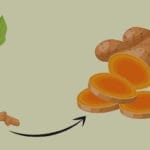Nutrigold discusses key aspects of supporting healthy immune function with Antony Haynes, RNT, BA(Hons), Dip ION
Antony Haynes, RNT, BA(Hons), Dip ION, has been in private practice as a nutritional therapist since 1992, working each week from Harley Street, London. He is one of the most experienced registered nutritional therapists in the UK, and he is one of the first practitioners to implement the principles of functional medicine there, beginning in 1994. Antony has been teaching for more than 25 years and is the author of two books, The Insulin Factor and The Food Intolerance Bible. With many years of successful, practical clinical experience, Antony remains focused on the essential requirements for a thriving practice, and he develops educational aids and clinical strategies to help healthcare practitioners achieve their primary aim of improving the health of their patients.
What are your immune-support basics —the things that almost everyone should be taking to support normal, healthy immune function?
HAYNES: Good question. I do not really have protocols, but I certainly have principles. Typically, the only time I give advice to anybody is after having taken a detailed case history. And that means possibly looking at about 435 bits of data, or more, about the individual.
So, that being said, I have to say zinc is probably the number-one nutrient I have found to be low in the vast majority of individuals I have tested over the past 28 years.
Although individuals may also have a lack of vitamin D and magnesium, making sure one has enough zinc is particularly important for the immune system. With zinc, I really don’t go over 40 mg, and I’d actually rather give 25 or 30 mg (or maybe higher for a just a week), because you have the antagonism with manganese and copper, as well as iron.[1],[2]
If someone is generally OK in their health, then I might recommend a multiple antioxidant–type formula to cover the basics, including vitamins A and C and selenium. If individuals have a stronger need for immune support—perhaps they have a history of frequent infections or maybe they even have been ill—then I might certainly consider additional agents.
Firstly, I would make sure they have adequate selenium. I’m aware that the threshold is 400 mcg—I wouldn’t recommend supplementation with dosages that high, but I may certainly go with 200 mcg, or maybe 300 mcg initially. I would test to make sure that their vitamin D levels were optimal, and the testing for that is far more available than that for vitamin A. Vitamin A, however, may be equally important, and it may also be made even more insufficient, or functionally deficient, if one takes higher doses of vitamin D.[3] One might thus want to take a multivitamin containing both of these nutrients, or you could consider them as single nutrients so you can control their dose independently.
Some of the receptors of vitamin A and D are shared; they both play an important role in immune function.[4],[5],[6] Vitamin A is not to be underrated—it is particularly important for respiratory tract and digestive health. The way vitamin A was described before it became known as a vitamin was as the “epithelial nutrient.” So, vitamin A is important for the healing of the lining of our gut—it is an anti-ulcer agent—and also very important for lung health. The whole world is aware now of the need for vitamin D, but it’s much less aware about vitamin A.
Vitamin D and fish oil have become, in a sense, “green” allopathy, if you will, where healthcare practitioners are recommending them to everyone. But there really are other things that need to be balanced out with these nutrients, and there might be some sort of lopsided effect if you do not balance them. For vitamin D, one of these balancing nutrients is vitamin A, and for the omega-3s, it is the beneficial omega-6s that might be reduced as a consequence of the preferential sequestration of the body of the omega-3 fatty acids.
So, overall, vitamins and minerals for a healthy immune function, I would say zinc, selenium, vitamin D, and vitamin A, and then vitamin C.
I’m aware of the liposomal form of vitamin C really being the “Rolls-Royce” of vitamin C, although the straightforward buffered vitamin C, taken through the day, can really also be of great benefit to support immunity. Typically, bowel tolerance will tell you that you have hit your threshold on that for overall support.
NG: What are important nutrients for senior individuals to be taking to support a healthy immune response?
HAYNES: Bear in mind that the efficiency of machinery, of digestion and absorption, typically lessens as we age, particularly for individuals 70 and above. So, even if one is eating a super diet that is rich in nutrients, one may well have an increased need that can only be met by supplementation. In terms of assessing diet, I like the Aggregate Nutrient Density Index scoring system from Joel Fuhrman, MD; it works very well for assessing diet and is a good indication of the overall nourishment that food provides you.
I do enjoy learning about the reasons why broccoli and many vegetables are good for us, and for some of them, how their defence systems get activated when we chew or cut them. For example, with the cruciferous vegetables, the process of cutting or chewing allows them to activate our immune system via the aryl hydrocarbon receptors within the gut. For other things, the highest levels of antioxidants are often in the skin. Blueberry, for example, has many antioxidants in the skin. This is because the seeds are very close to the skin, and the skin is trying to protect it from the strong UV rays.
It is also important to bring up vitamin B12. I’m so wary of anyone at any age having a need for B12 that won’t show up in serum B12 testing. In many individuals who had their B12 levels tested by their doctor, I’ve conducted a number of tests of B12 and methylmalonic acid. And in many cases where the serum B12 has been elevated, it has actually been elevated along with methylmalonic acid, and the individual has had an insufficiency of B12, yet their serum showed it was high when B12 was tested alone.
NG: Do you have any favourite herbs or nutritional supplements for balancing out the inflammatory response?
HAYNES: Proteolytic enzymes can work well for many things, including a healthy immune function. I really find them to be useful for a wide array of purposes because they lyse and break down many inappropriate proteins in the body. Really, one of the only contraindications is if one is on blood thinners—then they wouldn’t be appropriate at a high dose.
Other things vary; I might include CoQ10, vitamin E and tocotrienols, and an omega-3/-6 combo. Sometimes I might do high doses of omega-3 with omega-6 for a week in an inflammatory condition such as rheumatoid arthritis.
Often, with inflammation and oxidative stress, what we really need to do is essentially stop the factory from producing so much toxic exhaust or toxic fumes. What we have to do then is intervene with support that helps the liver. So, I would say NAC would probably be one of my favourite agents to support the liver, along with other glutathione support. Intervening at the level of the gut with something like the probiotic Lactobacillus rhamnosus GG can also be useful for reducing inflammation stemming from the gut.
I also use a brown seaweed, Ecklonia cava, which is high in antioxidants for individuals who have an inflammatory process going on. It is excellent for more of the fatigued inflammation state of something like fibromyalgia or chronic fatigue syndrome.
So again, you can really see how it is important to ascertain the case history to know where inflammation is coming from so you can make choices from interventions such as these to address it most effectively. It’s really the principles, not so much a protocol.
NG: What other activities do you advocate to support immune function and overall health?
HAYNES: Getting your bare feet in the grass. There is nothing quite like it, but of course, it is more easily said than done when you are in larger cities or other places where the grass is scarce. I very much appreciate the famous Dutchman Wim Hof, who has a rock-star voice and the ability to sit on ice for 40 minutes—inspired by him, I do cold showers, ending a hot shower with a minute of cold at the end. I’m also a big fan of breathing: breathing out longer than breathing in so you can engage your parasympathetic nervous system. This takes the pressure off your immune system, which is effectively suppressed when the sympathetic system is dominant.
Everyone needs a balance between sympathetic and parasympathetic systems; however, a question I’ve never found an answer to is how many hours in the day we need one versus the other. Hopefully, when we are sleeping we have a parasympathetic dominance; otherwise, we would be awake, tossing and turning. In my estimation, about 12 to 15 hours of parasympathetic dominance would be ideal.
Moving meditation is something I recommend to virtually everyone as a way to begin to be more in the here and now. As Eckhart Tolle teaches, rather than being more mindful, it is important to achieve mind-less-ness, to be in the here and now. There is no stress in the here and now. The control of one’s mind, and actively engaging in the mindless or thoughtless process, can be done in a sort of ritualistic process every day. One way to do this would be working for 25 minutes and then finding some sort of moving meditation for five minutes as you walk in the grass or outside—then you are effectively more productive in the work you do in the next 25 minutes. It is much better to break up the day and decompress during it rather than working nonstop, and then needing a couple glasses of your favourite beverage in the evening to have the same effect.
I’ve had the pleasure of acquiring a house with a show garden, so I now garden for nearly an hour every morning, just mopping up the weeds. I can really see how gardening transports you to the here and now. Also, I really believe that when your eyes see lots of green and lively colours, this is a vital component for your well-being.
I also would recommend tapping the thymus a few times a day, and I’m also a fan of EFT (emotional freedom technique) tapping, visualization, mantras, and rituals. We’ve really lost some of these things—our daily rituals, that is—not only amid the pandemic but in our busy modern lives as well. What I have found to be effective is creating one’s own rituals. The key for me as a practitioner is finding what is best for a client—finding what lands best or resonates with them, and then getting them to be accountable for it and instilling it as a practice over the next 30 to 42 days (the amount of time it really takes to make a habit).
Really, if it is not yet evident here, I very much favour daily routine and ritual, and to carry the discipline over—that is, the discipline of the mind—as it is a very, very important thing for health and healthy immune function. And again, it is never just protocols, always principles.
[1] Sandstead HH. Zinc interference with copper metabolism. JAMA. 1978 Nov 10;240(20):2188.
[2] Lind T, et al. A community-based randomized controlled trial of iron and zinc supplementation in Indonesian infants: interactions between iron and zinc. Am J Clin Nutr. 2003 Apr;77(4):883-90.
[3] Allergy Research Group. No, YOU Complete Me: The Synergy of Vitamins A and D. FOCUS Newsletter. Special 40th Anniversary Issue. 2019:17-8.
[4] Jimenez-Lara AM, et al. Interaction of vitamin D and retinoid receptors on regulation of gene expression. Horm Res. 2000;54(5-1):301-5.
[5] Carlberg C. Lipid soluble vitamins in gene regulation. Biofactors. 1999;10(2-3):91-7.
[6] Zou A, et al. Retinoid X receptor (RXR) ligands activate the human 25-hydroxyvitamin D3-24-hydroxylase promoter via RXR heterodimer binding to two vitamin D-responsive elements and elicit additive effects with 1,25-dihydroxyvitamin D3. J Biol Chem. 1997 Jul 25;272(30):19027-34.







